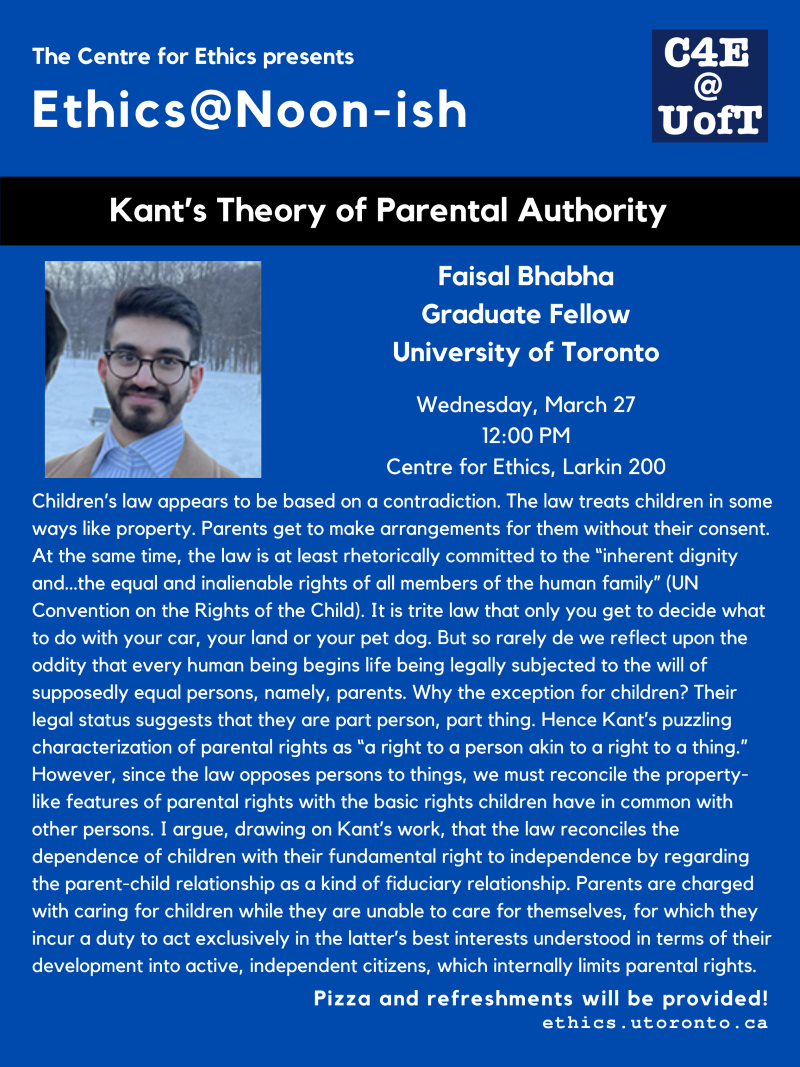Kant’s Theory of Parental Authority
When and Where
Speakers
Description
Kant’s Theory of Parental Authority
Children’s law appears to be based on a contradiction. The law treats children in some ways like property. Parents get to make arrangements for them without their consent. At the same time, the law is at least rhetorically committed to the “inherent dignity and…the equal and inalienable rights of all members of the human family” (UN Convention on the Rights of the Child). It is trite law that only you get to decide what to do with your car, your land or your pet dog. But so rarely de we reflect upon the oddity that every human being begins life being legally subjected to the will of supposedly equal persons, namely, parents. Why the exception for children? Their legal status suggests that they are part person, part thing. Hence Kant’s puzzling characterization of parental rights as “a right to a person akin to a right to a thing.” However, since the law opposes persons to things, we must reconcile the property-like features of parental rights with the basic rights children have in common with other persons. I argue, drawing on Kant’s work, that the law reconciles the dependence of children with their fundamental right to independence by regarding the parent-child relationship as a kind of fiduciary relationship. Parents are charged with caring for children while they are unable to care for themselves, for which they incur a duty to act exclusively in the latter’s best interests understood in terms of their development into active, independent citizens, which internally limits parental rights.
► this event is in-person at the Centre for Ethics (Larkin building, room 200).
Faisal Bhabha
Graduate Fellow, University of Toronto
12:00 PM - 02:00 PM
Centre for Ethics, University of Toronto
200 Larkin

Contact Information
Sponsors
- Centre for Ethics


